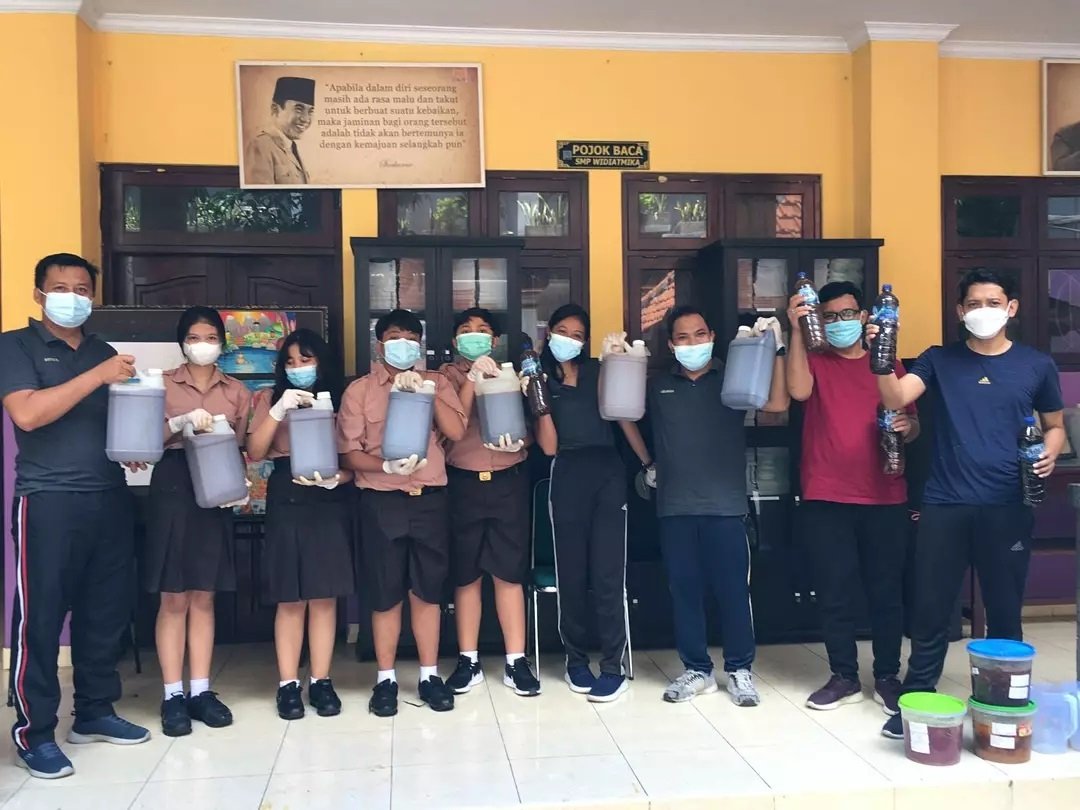
Sat, 18 Sep 2021
Students of SMP Widiatmika “harvested” eco-enzymes using fermented organic waste such as vegetables and fruits, Friday (18/9/2021). This eco-enzyme can later be used for many things, including as an antiseptic to fertilizer for plants.
"The students bring from home the waste of the vegetables and fruit they have consumed, whether it be green vegetables, cabbage, mango, orange peel," said SMP Widiatmika Principal, Agus Suastika, on Tuesday (21/9/2021).
"Later, this eco-enzyme will be used for air sterilization materials which sprayed every morning, and the dregs are used for plant fertilizers at school," he added.

Agus said that the idea to train SMP Widiatmika students to make eco-enzymes occurred in May 2021. He got this idea on the advice of one of the parents. At first, to launch this idea, SMP Widiatmika first conducted training for their teachers.
"When the teachers have understood, then we trained the children," said Agus, stating that this program is open to all students.
"During May to September, because it has been fermented for more than four months, it must be harvested. It's the time limit," he said.
This program was initiated because SMP Widiatmika is concerned about preserving the environment and managing waste. On another side, the students have been obliged to learn only from home online during the Covid-19 pandemic.

Despite a hard time like this, Agus said he wanted the students to still get life skill competencies, not just the learning material according to the curriculum.
"This is part of life skills. The purpose of this activity is how children understand the implementation of science, for example, managing organic waste into this eco-enzyme," he explained.
"That children can think, 'Oh, it turns out that vegetable waste, fruit peels, can still be used for very positive things, especially for air cleaning, fertilisers, washing dishes, mixed cleaning floors and toilets," he added.
This program also takes place voluntarily, starting during the gap period of the school year. Even so, the SMP Widiatmika felt happy doing all of this because they had the opportunity to explore their curiosity.
"We don't even give them a score for doing this. It turns out that recycling household organic waste is very interesting for them and very easy to apply independently in their homes. This kind of awareness is what we want to work up in the SMP Widiatmika learning environment," said Agus.
"We believe that something that starts from small things will produce something big," he concluded.